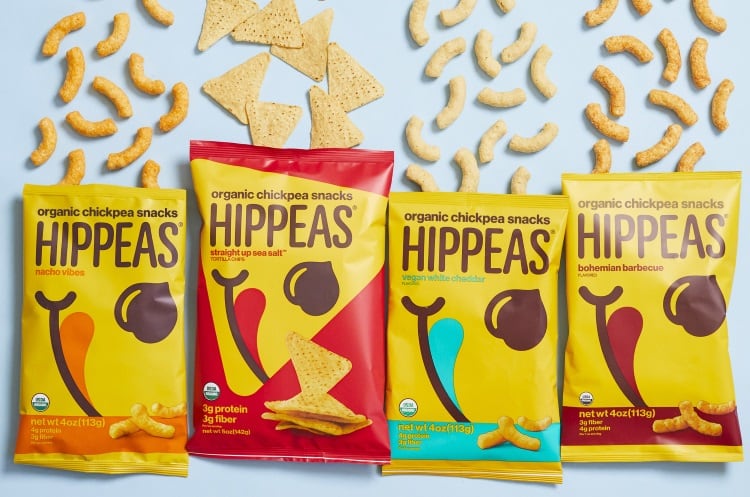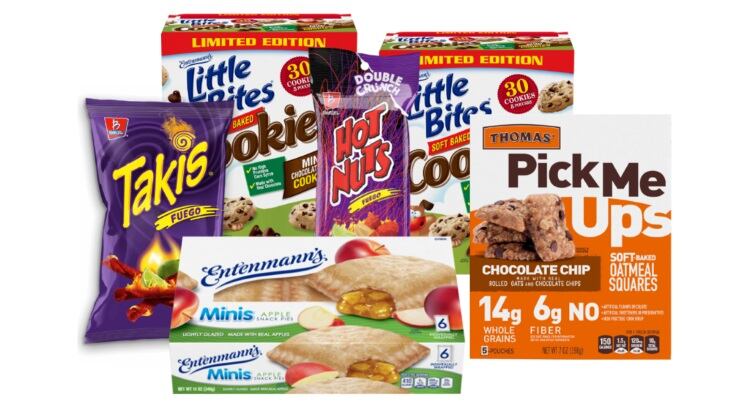Emerging from the pandemic more focused on their health, consumers are swapping out so-called unhealthy snacks for more natural options that are also better-for-you. They have also started giving greater credence to sustainable and eco-friendly products, willing to switch brands to meet these criteria.
“Indeed, the landscape has changed dramatically over the past few years,” said Thor Olof Philogène, cofounder and CEO of Stravito, a Swedish knowledge management specialist that has worked with companies like Danone, Electrolux and Comcast.
“Even with the height of the pandemic behind us, consumer behaviours remain in a relative state of flux. Rising inflation, record-low consumer confidence, supply chain issues and influences from new Gen Z customers keep the pendulum swinging and bakery and snack executives guessing as to what’s next.
“It’s undoubtedly a challenging time as manufacturers strive to keep pace with ever-changing consumer mindsets over products, packaging, purchasing and general consumption practices.”
Purposeful data
Today, data, research and insights are more valuable than ever for the livelihood of brands. Without it, tracking and responding appropriately to ongoing shifts in consumer spending, shopping and preferences becomes a guessing game.
There are many ways to achieve this, such as the move taken by PepsiCo.
In 2020, the snacking giant launched two direct-to-consumer (D2C) websites, enabling shoppers to choose from more than 100 Frito-Lay potato chips from brands like Lay’s, Tostitos, Cheetos and Ruffles, as well as dips, crackers and nuts. By selling snacks direct to the consumer, PepsiCo developed a better understanding of what their customers want – enabling the corporation to be more agile in their innovations.
“Most of the world’s largest companies – many of which are bakery and snack brands – spend millions every year acquiring an ocean of market insights,” said Philogène.
“Yet one of their biggest pain points remains: making those insights and data available to employees across the organisation. Stowed away in each group’s own respective local folders and computers, only certain teams and departments can access them, causing communication bottlenecks and breakdowns, leading to duplicate efforts and flawed decision making.”
Philogène recommends info is stored on a platform that is easily accessed by all.
“In these fast-paced, consumer-driven times, placing every piece of research and data on one unified software platform where it can be effectively traced, retrieved and utilised by anyone at any time is a profound gamechanger.
“Armed with valuable democratised insights from all sectors of the organization, stakeholders and employees can effectively build on each other’s ideas, collaborate openly, streamline workflow and unlock the innovation necessary to continue producing and delivering the products their customers know and love.”
Reducing inefficiencies
Storing documents, spreadsheets and reports in one centralised IT ecosystem is a major step toward gaining greater insight into consumer preferences, with the benefit of having the data within easy reach to find and retrieve.
According to McKinsey, employees spend up to 20% of business time looking for internal information that’s buried in company drives and folders. The monetary impact is incredible: research suggests poor knowledge sharing practices are estimated to cost Fortune 500 companies $31.5bn annually.
“An enterprise insights platform powered by AI with a user-friendly experience minimises the costly time-suck, creating an easy path to relevant consumer research,” added Philogène.
“Reports become as easy as finding information on Google with the surfaced content personalised to each individual based on signals such as market, industry and behaviour.
“Ultimately, new opportunities for bakery and snack manufacturers are uncovered quickly and efficiently. Based on easily accessible yet logically organised consumer behaviour data, products can be developed and delivered, and business strategies restructured purposefully to satisfy the needs and wants of customers today and going forward.”





